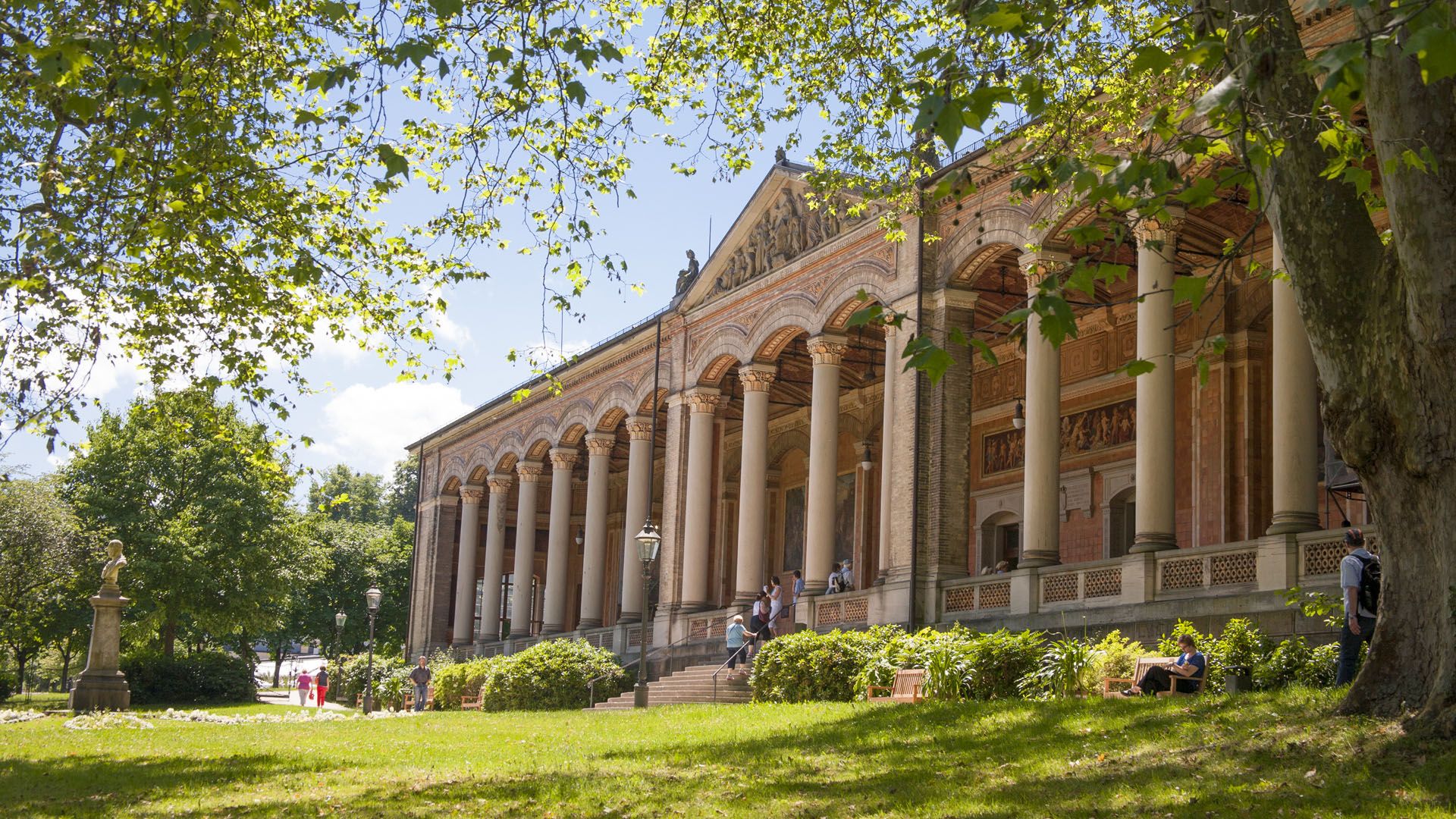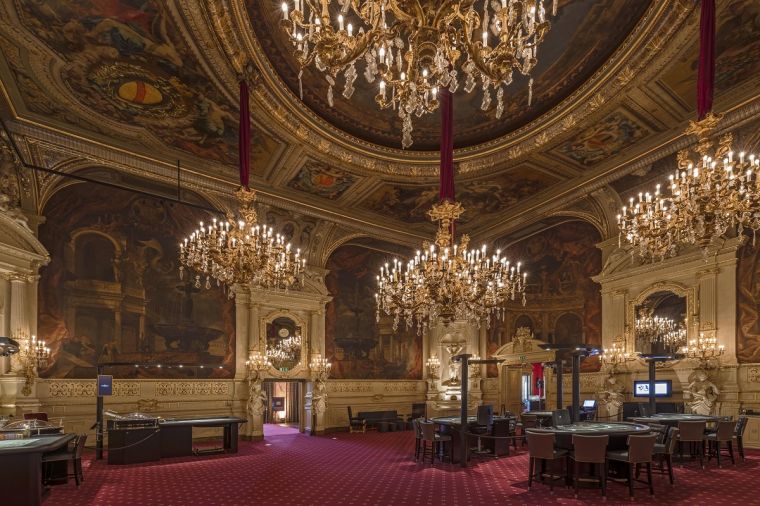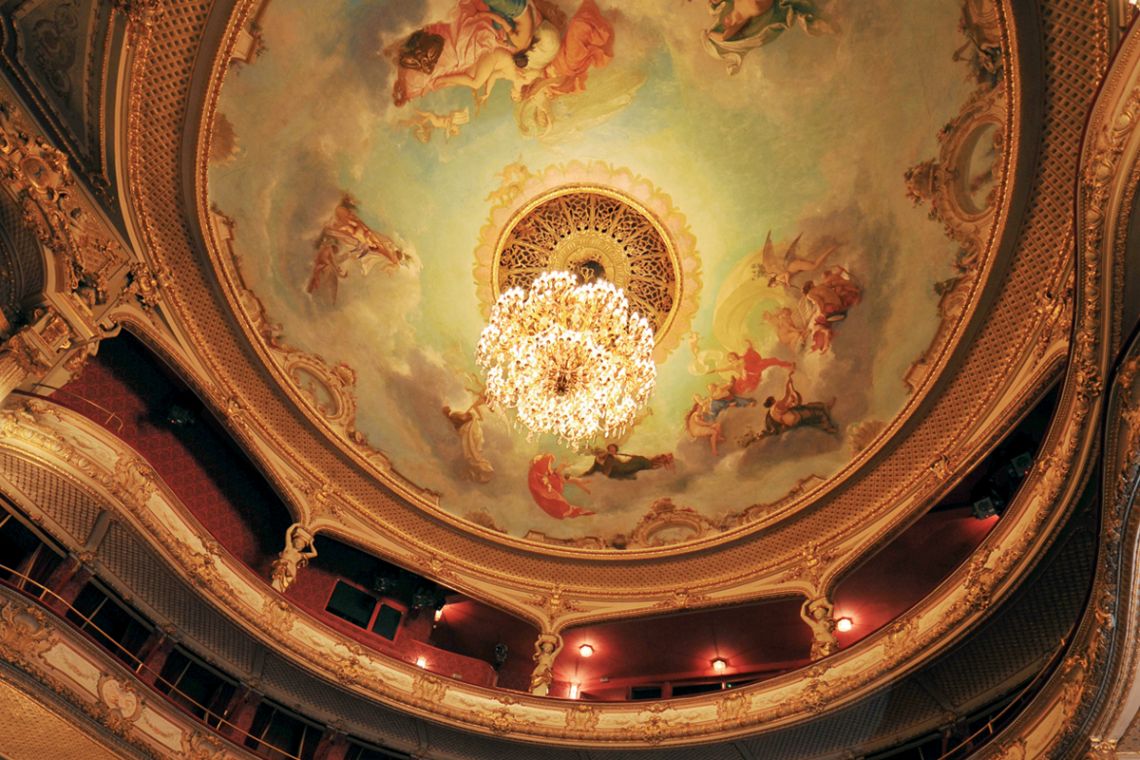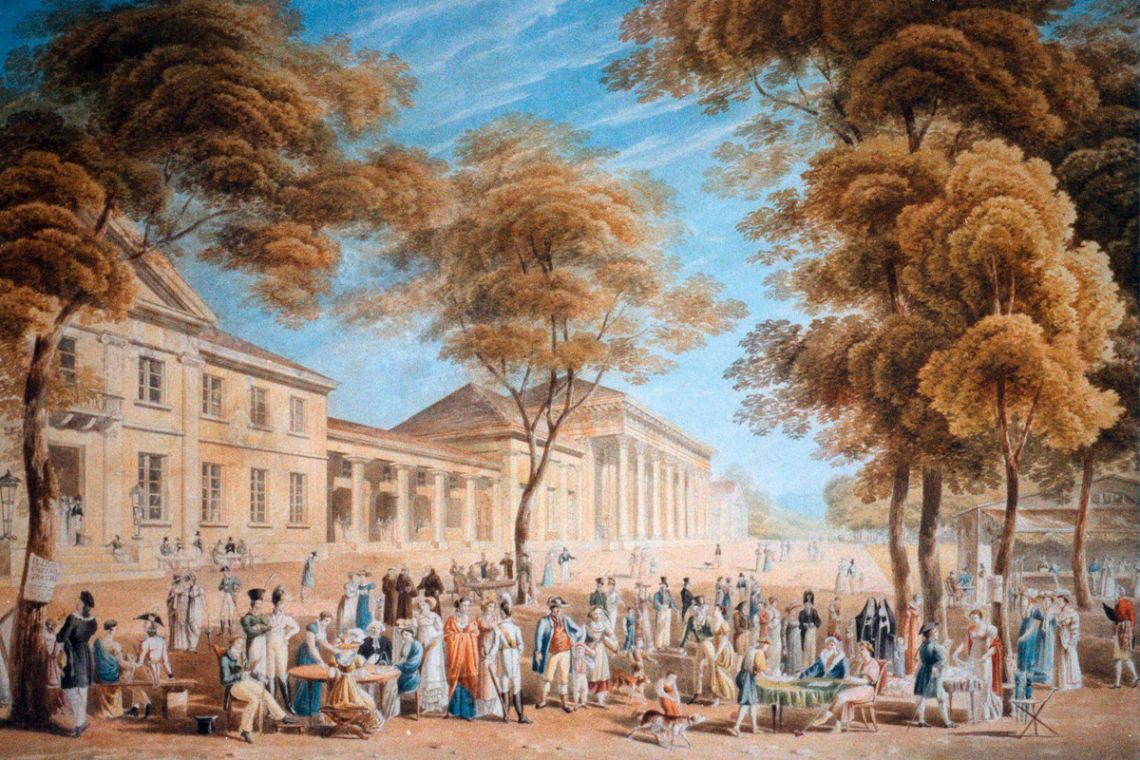
Histoire de Baden-Baden
La ville de Baden-Baden a une histoire de 2000 ans en tant que ville thermale. Son apogée comme "capitale d'été de l'Europe" se trouve au 19ème siècle. Pendant ce temps, il s'est développé en un centre de communication pour une clientèle internationale: nobles et citoyens, industriels et artistes, la santé et les malades des classes supérieures ont visité la ville sur la rivière Oos pendant plusieurs semaines et mois et ont façonné la vie sociale avec leurs revendications et intérêts. Les vestiges de cette époque dominent encore le paysage urbain: le Kurhaus, les hôtels élégants, les thermes publics, le quartier des villas, les courses hippiques internationales d'Iffezheim ... Partout à Baden-Baden, vous rencontrerez l'histoire et aurez une idée authentique de la vie dans une ville thermale du 19ème siècle.
All FAQs on UNESCO World Heritage
YES!
Baden-Baden has applied with the other cities of the Great Spa Towns of Europe. The decision on the nomination was made on Saturday, July 24, 2021: WE ARE A WORLD HERITAGE SITE!
The United Nations Educational, Scientific and Cultural Organization (UNESCO) is one of 17 independent specialised agencies of the United Nations (UN).
In 1972, UNESCO adopted the so-called World Heritage Convention in Paris. This convention for the protection of the world's cultural and natural heritage is now recognised by 193 states around the world.
The aim of the Convention is to protect and preserve those cultural and natural sites so that they can be passed on to future generations.
To be inscribed on the World Heritage List, sites must be of Outstanding Universal Value (OUV) and meet at least one of UNESCO's ten selection criteria.
The Great Spa Towns of Europe are a group of eleven major European spa towns in Austria, Belgium, the Czech Republic, France, Germany, Italy and Great Britain.
As a European initiative, they were jointly nominated for inclusion on the UNESCO World Heritage List.
The global significance and outstanding universal value are based on the fact that the "Great Spa Towns of Europe" are a representative testimony to the complex settlement-historical, social and cultural phenomenon of the European spa tradition. The roots of this tradition go back to antiquity, but it experienced its peak in the 18th and long 19th centuries.
Traditional bathing cultures exist in many parts of the world; the "European" spa tradition differs significantly from these in that the use of healing springs over the centuries led to the development of a special type of settlement - the European spa town.
In the World Heritage application, in addition to Baden-Baden, the cities of Bad Ems and Bad Kissingen (all Germany), Baden bei Wien (Austria), Bath (Great Britain), Franzensbad, Karlsbad and Marienbad (all Czech Republic), Montecatini Terme (Italy), Spa (Belgium) and Vichy (France) are involved.
The World Heritage core zone in Baden-Baden includes the various city quarters in the historic city centre, which developed from the Middle Ages to the early 20th century.
A protective zone (buffer zone) surrounds this core zone evenly on all sides and extends to the ridges of the Battert, Merkur Berg, Wurzgartenkopf and Fremersberg.
The nominated World Heritage Site is centred on the historic urban area of the spa town within its 1920 boundaries and includes highly visible transitions into the surrounding spa landscape.
From a spatial point of view, the entire historic city centre of Baden-Baden within its 1920 boundaries is part of the nominated World Heritage Site, in which the special characteristics (attributes) of the "Great Spa Towns of Europe" and their individual objects (elements) of Outstanding Universal Value can still be seen today and which stand for the authenticity and integrity of the nominated World Heritage Site.
- On one of our five world heritage walks
- On an exciting World Heritage city tour
- In style on a horse-drawn carriage ride along Lichtentaler Allee
- At afternoon tea at the Brenners Park Hotel & Spa in the ambience of a grand hotel.
- At a play in the impressive Baden-Baden Theatre
- During a bathing and wellness break in the Friedrichsbad
- A walk along the Lichtentaler Allee with the matching audio guide
- With this matching Spotify playlist
The states commit to protecting and maintaining the sites and to implementing sustainable development and tourism concepts.
In doing so, they apply the national legal bases and protection instruments available to them, such as monument law and building and planning law.
The World Heritage sites are regularly reviewed internally and by international expert bodies.
"From a tourism point of view, the World Heritage title as part of the "Great Spa Towns of Europe" highlights Baden-Baden's appeal as a must-see destination in Europe, especially for international guests. Precisely because in our city we succeed in combining a great past with a new and international culture of life at the highest level. At the same time, the World Heritage title would also encourage us to protect the unique image of the Old Town as the centrepiece of the good life in Baden-Baden - for guests and citizens alike," - says Nora Waggershauser, Managing Director of Baden-Baden Kur & Tourismus GmbH.
 Baden-Baden Kur & Tourismus GmbH
Baden-Baden Kur & Tourismus GmbH


